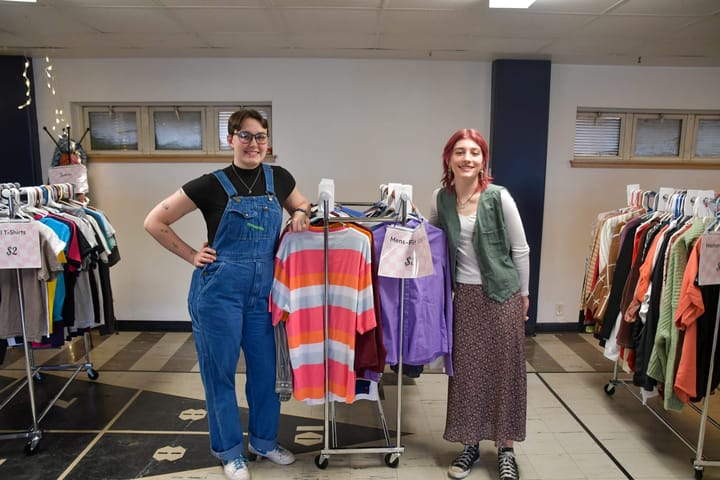Professors adapt to teaching fully online
Over the summer while many students were taking a break from thinking about school, professors were asking themselves an important question: Will I be teaching in person or electronically this year?
For a handful of professors at Augustana University, the latter turned out to be the better option. While many professors on campus decided to go with the hybrid-flex model, which emphasizes in-person learning with the option of going online, some decided to teach their classes entirely online this fall.
Heather Bart, communications studies department chair, is one of those professors. Her husband and fellow communications studies professor John Bart is teaching his classes in person, but she has decided to teach her classes—all upper level—entirely online.
“We’re managing our risks,” she said. “That was the one thing we could kind of control. So we kind of split the difference on the family.”
Heather said she thinks the largest downside to being online is being away from the students. On Zoom, it is harder to chat with students before and after class, and there are no random stop-ins, she said. Be that as it may, Heather still tries to keep the content of her class close to what it would be if it were in person.
“I have tried to keep some of the main elements [of the class] as similar as I can to the on-campus experience even though I can’t really reproduce that fully,” she said.
Darcie Rives-East, English professor and First-Year Seminar (FYS) director, decided to teach online due to health risks. Rives-East said she was able to get a medical exemption from teaching in person because she has asthma.
She is teaching two classes this semester, one of which is an FYS course that she’s taught before in person. One of the disadvantages Rives-East notes is the lack of personal connection between her and her students. She works to compensate for that byusing screencasts and weekly Zoom meetings.
Rives-East finds an advantage in the way discussions can now be structured online.
“I’ve found that the discussions in these online versions have often been really superior to what I’ve seen face to face,” she said.
She notes that students who may have been afraid to speak up in class are now able to say what they are thinking on online discussion boards more easily.
In the sociology department, Carolyn Ly-Donovan, professor and interim department chair, said she is trying to empathize with what her students are going through.
“I’m trying to be more aware that everyone is juggling a lot of things. I’m trying to be fair,” Ly-Donovan said. “I’m trying to be consistent with everybody, but I’m also trying to be more understanding.”
Ly-Donovan said she is grateful to Augustana for being accepting and accommodating to those who are at risk or have family members at risk.
“Being able to be a part of an institution that acknowledges that there are people that are higher risk and having this technology and format available I think is important,” she said.
Taha Afzal, a junior computer science and data science double major, is currently taking advanced programming taught online by professor Steve Shum. Afzal finds that while he prefers online classes, he is grateful the classes he does have online started that way.
“When we went online last semester, it was kind of tough to adjust to it,” he said. “But now when we started this class all online from the beginning it was much better than, you know, shifting mid-semester.”
The ups and downs of Zoom and in-person courses affect professors and students alike.
“There’s not a better or worse,” Rives-East said in reference to online versus in person classes. “There’s just different.”



